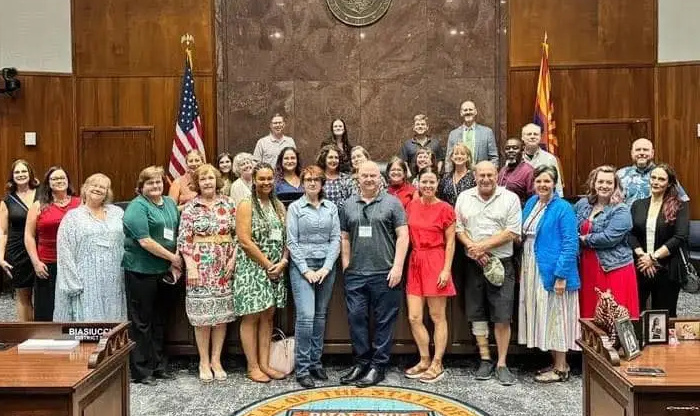NACDD prohibits discrimination, harassment, and bullying against any person for any reason—for example, because of age, ancestry, color, disability or handicap, national origin, race, religion, gender, sexual or affectional orientation, gender identity, appearance, matriculation, political affiliation, marital status, veteran status, or any other characteristic protected by law.
DD Councils are part of the Developmental Disabilities Network as outlined by the Developmental Disabilities Assistance and Bill of Rights Act Amendments of 2000 (The DD Act). The DD Network works independently through federal funding provided by the Administration on Intellectual and Development Disabilities under the leadership of the Administration for Community Living in the Department of Health and Human Services. DD Councils are made up of voluntary members appointed by the state’s governor. By law, the majority of members must have a developmental disability or be a family member to a person with developmental disability. The DD Councils focus on creating programs and advocating policy that empower individuals with developmental disabilities and allows them to participate as an equal member of society. DD Councils work to create an environment of self-sufficiency, self-determination, inclusion, and acceptance. DD Councils also play a critical role in quality assurance and as innovators in the development of community programs and solutions.

